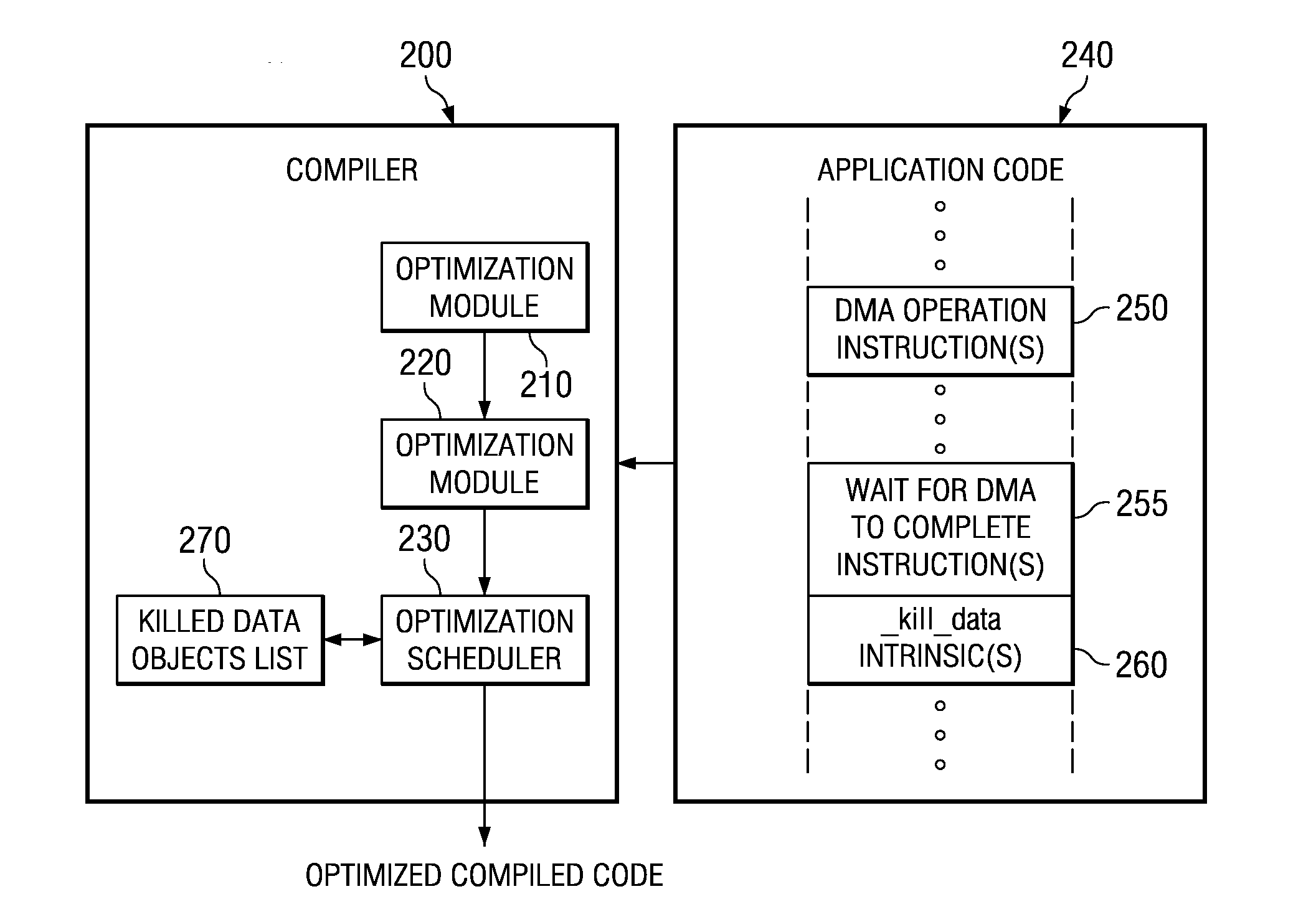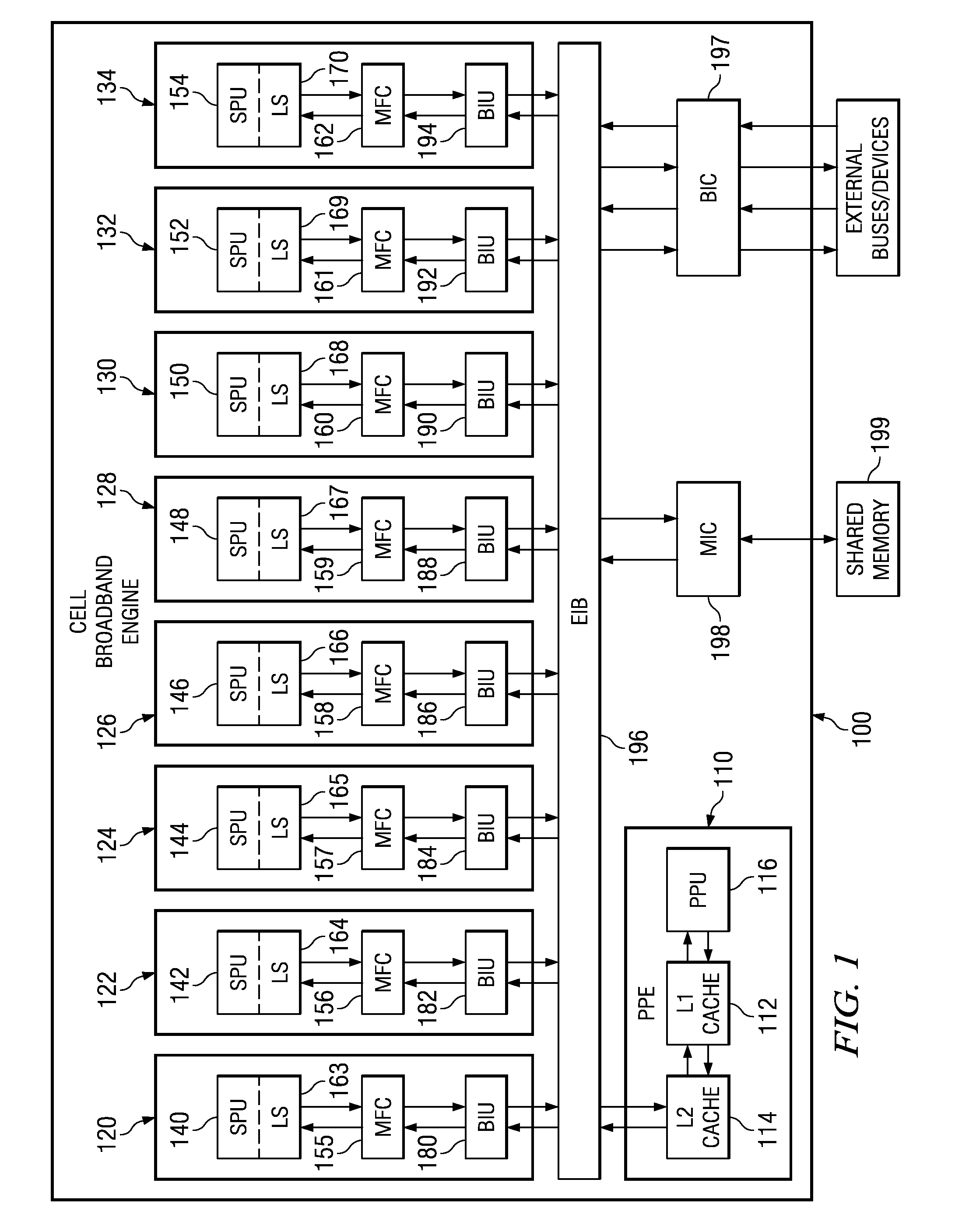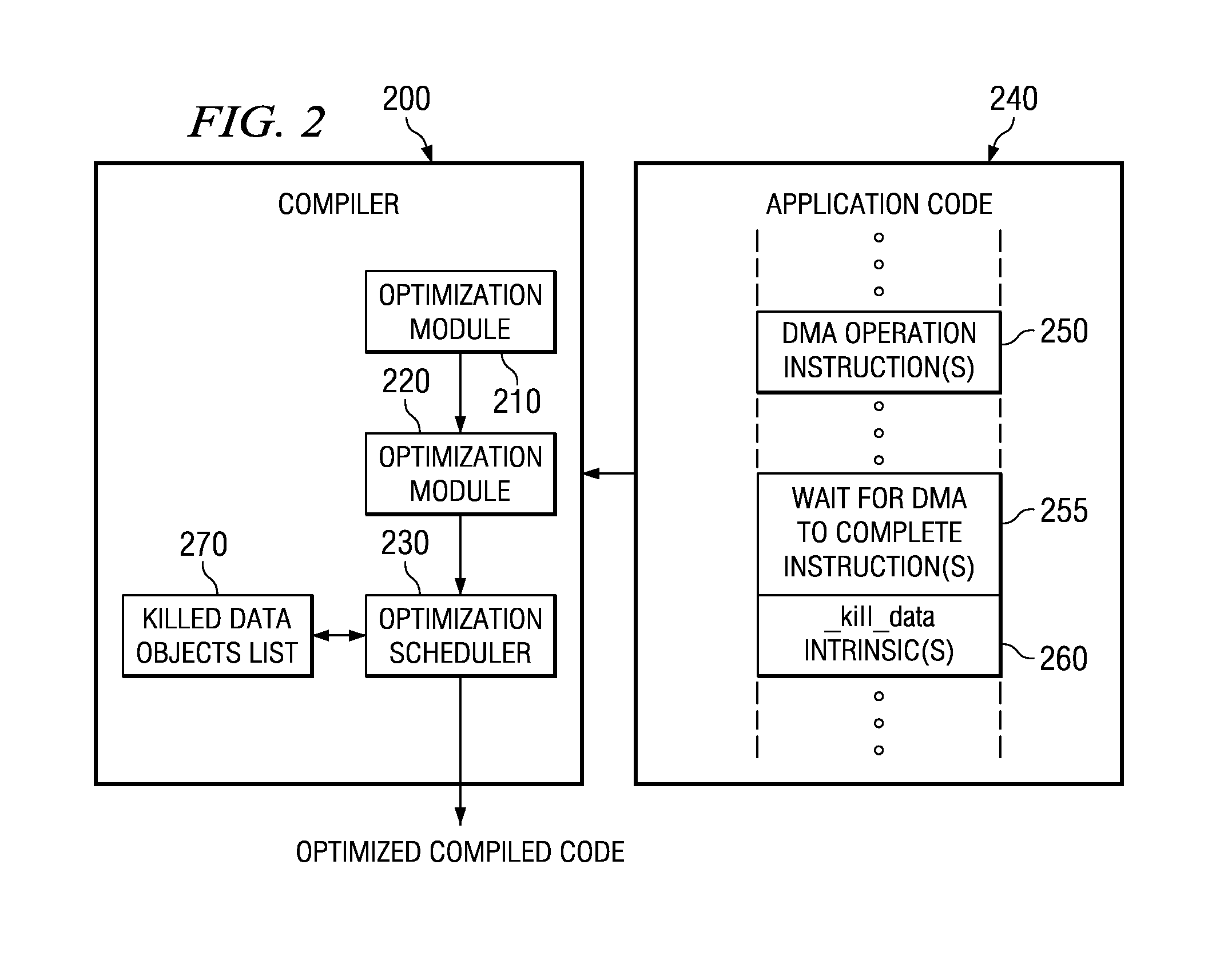Apparatus and method for ensuring maximum code motion of accesses to DMA buffers
a buffer and code motion technology, applied in the field of data processing devices, can solve the problems of dma execution execution execution execution execution execution execution execution execution execution execution execution execution execution execution execution execution execution execution execution execution execution execution execution execution execution execution execution execution execution execution execution execution execution execution execution execution execution execution execution execution execution execution execution execution execution execution execution execution execution execution execution execution execution execution execution execution execution execution execution execution execution execution execution execution execution execution execution execution execution execution execution execution execution execution execution execution execution execution execution execution execution execution execution execution execution execution
- Summary
- Abstract
- Description
- Claims
- Application Information
AI Technical Summary
Benefits of technology
Problems solved by technology
Method used
Image
Examples
Embodiment Construction
[0029] The following illustrative embodiments provide an apparatus, method and computer program product for ensuring maximum code motion of accesses to Direct Memory Access (DMA) buffers. The illustrative embodiment may be implemented in any processor design or architecture in which DMA buffers are utilized. One such processor design or architecture in which the exemplary aspects of the illustrative embodiments may be implemented is the Cell Broadband Engine (CBE) architecture available from International Business Machines, Inc. The CBE architecture is only exemplary of the possible processor architectures in which the illustrative embodiment may be implemented and the description of such in the following detailed description is not intended to state or imply any limitation with regard to the types of processor architectures in which the illustrative embodiment may be implemented.
[0030]FIG. 1 is an exemplary block diagram of a microprocessor chip in which aspects of the illustrativ...
PUM
 Login to View More
Login to View More Abstract
Description
Claims
Application Information
 Login to View More
Login to View More - R&D
- Intellectual Property
- Life Sciences
- Materials
- Tech Scout
- Unparalleled Data Quality
- Higher Quality Content
- 60% Fewer Hallucinations
Browse by: Latest US Patents, China's latest patents, Technical Efficacy Thesaurus, Application Domain, Technology Topic, Popular Technical Reports.
© 2025 PatSnap. All rights reserved.Legal|Privacy policy|Modern Slavery Act Transparency Statement|Sitemap|About US| Contact US: help@patsnap.com



